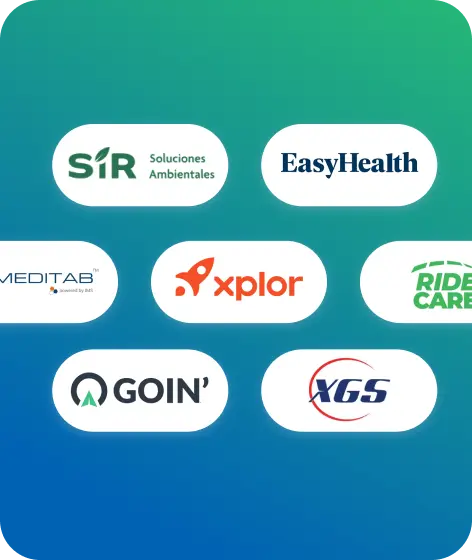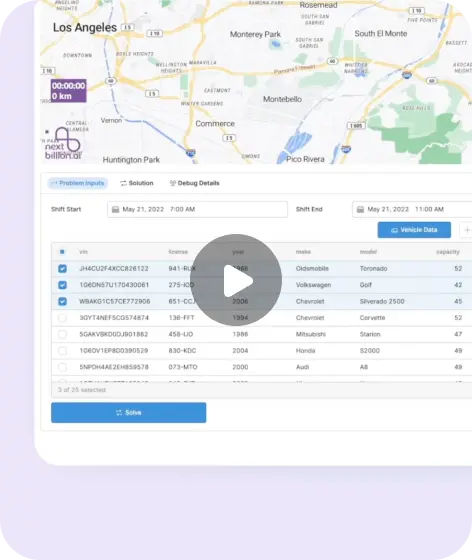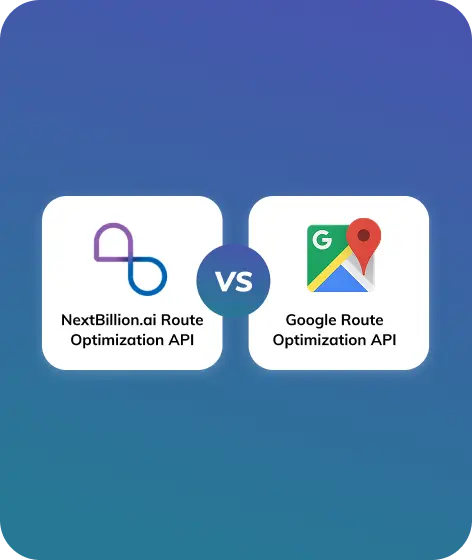Vehicle fleet management is critical to transportation-based businesses’ operational efficiency and cost-effectiveness. With the global vehicle fleet management market expected to reach $34.6 billion by 2026, optimizing fleet operations has become critical for businesses seeking a competitive edge.
According to industry statistics, fuel expenses account for approximately 30% of a vehicle’s total operating costs, making fuel management an important aspect of fleet optimization. Furthermore, effective vehicle fleet management increases productivity and reduces carbon footprint, aligning with today’s growing emphasis on sustainability in the business landscape.
In this comprehensive guide, we look into the complexities of vehicle fleet management, providing actionable insights and best practices for streamlining operations, lowering costs, and increasing productivity.
Definition of Vehicle Fleet Management
Vehicle fleet management is an array of management activities for a set of vehicles owned or leased by an organization. It includes strategically coordinating various aspects of fleet operations, such as acquisition, maintenance, utilization, and disposal, to achieve peak performance, efficiency, and cost-effectiveness.
Fleet managers monitor vehicle usage, implement maintenance schedules, optimize routes, manage fuel consumption, and ensure regulatory compliance. The primary goal of vehicle fleet management is to increase vehicle productivity and lifespan while reducing operational costs and risks associated with fleet operations.
Vehicle Fleet Management Software
Vehicle fleet management software is the foundation of modern fleet operations, offering tools and functionalities to simplify administrative tasks and improve decision-making processes.
Benefits of Vehicle Fleet Management Software
Implementing vehicle fleet management software offers numerous benefits for businesses operating vehicle fleets:
Improved Efficiency: Fleet management software automates routine tasks like vehicle tracking, scheduling, and maintenance, allowing managers to allocate resources more effectively and maximize fleet utilization.
Enhanced Safety: Advanced features such as real-time monitoring and driver behavior analysis assist in identifying and mitigating potential risks, promoting safer driving practices and decreasing the likelihood of accidents.
Cost Reduction: Fleet management software reduces operational costs by optimizing routes, lowering fuel consumption, and minimizing vehicle downtime through proactive maintenance scheduling.
Compliance Management: Many fleet management solutions include features to ensure compliance with industry regulations and standards, such as electronic logging devices (ELDs) for tracking hours of service (HOS) and reporting vehicle inspections.
Data-Driven Decision-Making: Fleet management software generates insightful reports and analytics, providing valuable information on vehicle performance, fuel efficiency, and maintenance requirements, allowing fleet managers to make more informed decisions and strategic improvements.
Types of Vehicle Fleet Management Software Available
Several types of fleet management software cater to specific needs and requirements:
Telematics Solutions: Telematics-based software uses GPS technology to track vehicle location, monitor driving behavior, and collect real-time fuel consumption and diagnostic data.
Maintenance Management Systems: These systems schedule and manage vehicle maintenance tasks such as routine inspections, oil changes, and repairs in order to reduce downtime and increase vehicle lifespan.
Route Optimization Software: Route optimization software determines the most efficient routes for vehicles based on traffic conditions, delivery schedules, and fuel efficiency, lowering fuel costs and improving delivery times.
NextBillion.ai’s Route Optimization API can easily be integrated into your existing application, giving you advanced Routing capabilities that can be tailored to your needs.
Asset Tracking Platforms: Asset tracking software allows businesses to monitor vehicles, equipment, and trailers, giving them visibility and control over valuable assets throughout their fleet.
NextBillion.ai offers an advanced Tracking API and SDKs that can be used to track your fleet and set real-time tracking alerts.
Enterprise Resource Planning (ERP) Integration: Some fleet management software solutions work with ERP systems to streamline processes like inventory management, procurement, and financial reporting, providing a complete solution for fleet and business operations management.
NextBillion.ai offers seamless Telematics, CRM and ERP integrations that enable you to integrate your existing telematics, CRM and ERP applications and optimize your vehicle fleet management capabilities. Explore our Fleet Management Solution and Book a demo today.
Businesses can increase efficiency, safety, and profitability in their fleet operations by choosing the right type of fleet management software that is tailored to their specific needs.
Fleet Vehicles
Fleet vehicles are the backbone of transportation operations in a variety of industries, including logistics and delivery, mobility, and service businesses. Understanding the various fleet vehicle types available, as well as the emerging trend of electric vehicles (EVs) in fleet management, is critical for optimizing fleet operations in today’s dynamic environment.
Different Types of Fleet Vehicles
Fleet vehicles come in a variety of types and configurations, all designed to meet specific operational requirements:
Sedans and SUVs: These are popular choices for corporate fleets because they offer versatility and comfort for business travel, client meetings, and executive transportation.
Vans and minivans: Ideal for transporting goods, equipment, or passengers, vans have plenty of cargo space and seating capacity, making them popular choices for delivery services, shuttle operations, and trade-based businesses.
Read this detailed technical notebook on Employee Transportation Solutions.
Trucks and Commercial Vehicles: Trucks are available in a variety of sizes and configurations, including pickup trucks, box trucks, and flatbeds, serving industries such as construction, freight transport, and landscaping that require heavy-duty hauling capabilities.
Explore NextBillion.ai’s Trucking Soution to get truck-compliant routes, use over 50 constraints, and plan multi-day HOS-compliant routes easily.
Specialized Vehicles: Some fleets require specialized vehicles designed for specific tasks, such as refrigerated trucks for transporting perishable goods, utility trucks for maintenance and repair, and emergency vehicles for first responders.
Understanding the distinct features, capabilities, and limitations of each type of fleet vehicle is critical for fleet managers in making informed decisions about fleet composition, maintenance requirements, and operational efficiency.
Electric Vehicles in Fleet Management
The use of electric vehicles (EVs) in fleet management has grown significantly in recent years due to their environmental benefits, cost-saving potential, and technological advancements. Key considerations for electric vehicles in fleet management include:
Environmental Sustainability: EVs emit zero tailpipe emissions, lowering greenhouse gas emissions and mitigating environmental impact compared to traditional internal combustion engine vehicles. This is consistent with corporate sustainability goals and regulatory requirements aimed at reducing carbon footprint.
Cost Savings: Electric vehicles may be more expensive to purchase than gasoline or diesel vehicles, but they have lower operating costs due to lower fuel expenses and simpler maintenance requirements. Over the lifespan of the vehicle, savings on fuel and maintenance costs can outweigh the initial investment, resulting in long-term cost savings.
Infrastructure and Range Considerations: When integrating EVs into their fleets, fleet managers must assess the availability of charging infrastructure as well as the range limitations of electric vehicles. Strategic planning for charging station placement, route optimization, and vehicle charging schedules is critical to ensuring continuous operations and maximizing the efficiency of electric fleet vehicles.
Technological Advancements: Advances in battery technology, charging infrastructure, and vehicle connectivity are propelling the evolution of electric vehicles, improving performance, range, and functionality. Fleet management software solutions designed specifically for electric vehicles include features such as range prediction, charging station management, and battery health monitoring to help optimize the use and maintenance of electric fleet vehicles.
As the automotive industry shifts toward electrification and sustainable transportation solutions, incorporating electric vehicles into fleet operations provides an opportunity for businesses to save money, reduce environmental impact, and future-proof their fleets against changing market trends and regulations.
Route Planning and Optimization
Efficient route planning is essential for fleet operations to minimize fuel consumption, reduce travel time, and enhance overall productivity. By leveraging advanced route optimization techniques, fleet managers can achieve significant cost savings and operational efficiencies.
Importance of Efficient Routes
Optimizing routes not only reduces fuel costs but also minimizes vehicle wear and tear, lowers emissions, and improves customer satisfaction through timely deliveries. Efficient routes enable fleet managers to allocate resources effectively, optimize driver schedules, and mitigate risks associated with traffic congestion or road closures.
Real-Time Visibility in Route Planning
Real-time visibility tools provide fleet managers with actionable insights into route performance, allowing for dynamic adjustments based on changing conditions or unexpected events. By using GPS tracking technology and telematics solutions, fleet managers can monitor vehicle locations, track delivery progress, and promtly respond to route deviations or delays.
Asset Management
Effective asset management is critical for optimizing the utilization, maintenance, and lifecycle of fleet assets. By implementing robust tracking and maintenance strategies, fleet managers can maximize asset productivity, minimize downtime, and extend asset lifespan.
Tracking and Utilization of Assets
Asset tracking solutions enable fleet managers to monitor vehicle location, usage patterns, and performance metrics in real-time. By analyzing utilization data, fleet managers can identify underutilized assets, optimize asset allocation, and right-size the fleet to meet operational demands efficiently.
Preventative Maintenance for Fleet Assets
Preventative maintenance programs help mitigate the risk of unexpected breakdowns, reduce repair costs, and prolong asset lifespan. By implementing scheduled maintenance routines and leveraging predictive maintenance technologies, fleet managers can identify potential issues before they escalate, ensuring fleet assets remain in optimal condition.
Cost Reductions and Operational Efficiency
Cost reduction initiatives are fundamental to maintaining a competitive edge in fleet management. By implementing strategies to reduce operational expenses and improve efficiency, fleet managers can achieve significant cost savings and enhance overall profitability.
Ways to Reduce Operational Costs
Cost reduction strategies may include optimizing fuel usage, reducing idle time, implementing driver training programs, and negotiating favorable vendor contracts. By identifying inefficiencies and implementing targeted cost-saving measures, fleet managers can optimize operational expenses while maintaining service levels.
Benefits of Efficient Fleet Management
Efficient fleet management offers numerous benefits, including cost savings, improved customer satisfaction, reduced environmental impact, and enhanced regulatory compliance. By leveraging technology, data analytics, and best practices, fleet managers can drive operational excellence and achieve sustainable growth in today’s competitive marketplace.
Trends in Vehicle Fleet Management
The landscape of vehicle fleet management is rapidly evolving, driven by several key trends.
- Electrification and Sustainability: To reduce emissions and operating costs, businesses are switching to electric vehicles and exploring alternative fuels.
- Telematics and Connected Vehicles: Telematics systems provide real-time data to optimize route planning, improve safety, and increase overall efficiency.
- Autonomous Vehicles and ADAS: Advanced driver assistance systems improve safety and efficiency, while autonomous vehicles are a possibility for future fleet operations.
- Predictive Maintenance and Asset Management: Predictive maintenance solutions utilize proactive maintenance strategies to reduce downtime and increase asset lifespan.
- Mobility as a Service (MaaS) and Shared Mobility: Shared mobility models and MaaS platforms are reshaping fleet ownership and utilization by providing cost-effective alternatives.
These trends drive innovation and provide opportunities for fleet managers to optimize operations and remain competitive in the fleet management landscape.




